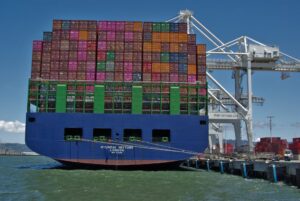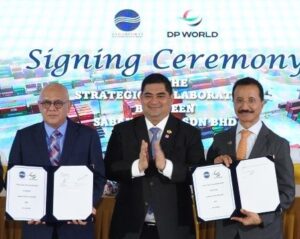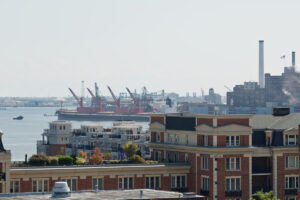The California Air Resources Board (CARB) has announced new regulations requiring all new heavy-duty truck sales to be zero-emission by 2045.
The rules require the phasing out of sales of medium and heavy-duty combustion trucks in California by 2036, which is a significant step towards achieving Governor Gavin Newsom’s ambitious plan to cut pollution and accelerate the transition to clean vehicles.
The new rules, known as Advanced Clean Fleets, provide fleet operators with different options to begin transitioning to zero-emissions technology. These options will be available to major fleet operators, including state, local, and federal government fleets.
“The future happens here first, and California is once again showing the world what real climate action looks like,” said Governor Newsom.
“Last year, our state approved one of the world’s first regulations requiring all new car sales to be zero emissions. Now, with these actions requiring all new heavy-duty truck sales to be zero emission and tackling train pollution in our state, we’re one step closer to achieving healthier neighbourhoods and cleaner air for all Californians.”
READ: California, Japan collaborate on decarbonisation and green shipping
The new rule also aims to limit train pollution in the state by adopting a first-in-the-nation regulation that requires newly built passenger and freight trains to be zero-emission by 2030 and 2035, respectively.
According to CARB, trucks represent only 6 per cent of California vehicles, but they represent a quarter of the state’s on-road greenhouse gas emissions and over a third of the state’s emissions of the harmful air pollutant Nitrogen oxides (NOx).
This is expected to generate $26.6 billion in health savings, and fleet owners will save an estimated $48 billion from the transition to cleaner vehicles.
CARB’s regulation complements the 2017 update of the San Pedro Bay Clean Air Action Plan of the Port of Long Beach, which seeks to bring cleaner locomotives and requires zero-emissions trucks by 2035.
The Port of Long Beach has since welcomed CARB’s new regulations.
“We will continue to forge ahead with our investments in and work on developing the clean air technology and network that will help this state and the San Pedro Bay ports to achieve these historic and groundbreaking advances in environmental sustainability,” said Port of Long Beach Executive Director Mario Cordero.
READ: Port of Long Beach turns to wind power, ZEERO programme for green goals
Earlier last week, Governor Gavin Newsom announced a $30 million investment in developing a shared data system between the Ports of Long Beach, Los Angeles, and four other major seaports in the state.
The shared system, called the California Port Data Partnership, aims to advance computerised and cloud-based data interoperability to support improved freight system resilience, goods movement efficiency, emissions reduction, and economic competitiveness.









